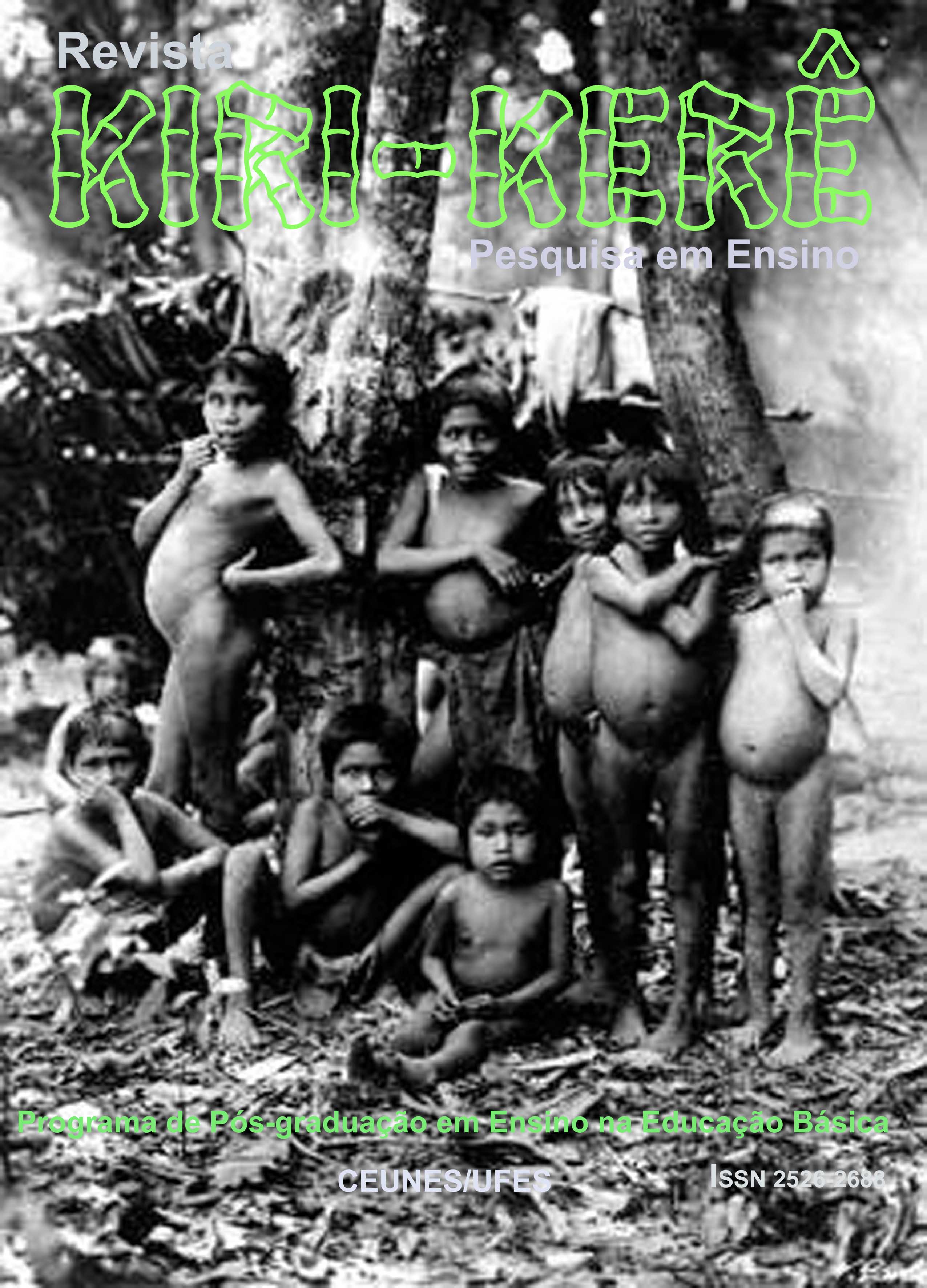A função social do professor de química em relação à pandemia no Brasil
DOI:
https://doi.org/10.47456/krkr.v1i12.34711Palavras-chave:
Professor de Química, Pandemia, SociedadeResumo
O professor de Química dispõe de profusas responsabilidades – seja na escola ou fora dela – esse profissional contribui para a formação de incontáveis cidadãos a cada ano. No ano de 2020, com a pandemia do COVID-19, os professores tiveram que se reconstruir e atender a uma nova exigência: trabalhar com o ensino a distância. Conjuntamente, seu papel modificou-se, trazendo outras responsabilidades mais urgentes, como educar para a conscientização quanto à prevenção desse vírus. Posto isso, o presente trabalho é uma análise conceitual, que tem por objetivo conhecer as diferentes funções sociais que o professor de Química assumiu durante a pandemia dentro do contexto brasileiro, por meio da utilização de um questionário on-line, de cunho qualitativo, com o intuito de conhecer diferentes opiniões sobre a temática. Esse questionário contém três perguntas discursivas, sendo a pergunta “De uma forma geral, qual o papel do professor de Química dentro de uma pandemia?” utilizada para a categorização das respostas e posterior reflexão das temáticas trazidas pelas mesmas. Em síntese, pôde-se observar que a maior parte das pessoas conseguiu elaborar uma resposta que tratava de, pelo menos, um tópico pertencente à função do professor de Química, demonstrando que a presença desse profissional é comum no cotidiano da sociedade. Conforme os argumentos expostos pelos participantes, deve-se educar de forma igualitária e justa, relacionando o conteúdo de Química ao problema vivido, de forma a prepará-los criticamente para lidar com essa nova conjuntura.
Referências
ALIANE, C. S. DE M.; COSTA, L. A. S. Concepção de professores de química sobre a importância do ensino de química para a formação do cidadão Introdução : Atas do IX Encontro Nacional de Pesquisa em Educação em Ciências, p. 1–8, 2013. Disponível em: <http://abrapecnet.org.br/atas_enpec/ixenpec/atas/resumos/R0355-1.pdf>. Acesso em: 5 nov. 2020.
ANJOS, M. S. DOS; CARBO, L. Enfoque CTS e a atuação de professores de ciências. ACTIO: Docência em Ciências, v. 4, n. 3, p. 35–57, 2019. Disponível em: <https://periodicos.utfpr.edu.br/actio/article/view/9329>. Acesso em: 5 nov. 2020.
BARDIN, L. Análise de conteúdo. São Paulo: Edições 70, 2010.
BOUZON, J. D. et al. O Ensino de Química no Ensino CTS Brasileiro: Uma Revisão Bibliográfica de Publicações em Periódicos. Química Nova na Escola, v. XX, p. 1–12, 2018. Disponível em: <http://qnesc.sbq.org.br/online/artigos/11-CP-69-17.pdf>. Acesso em: 10 nov. 2020.
CAMARGO, N. S. J. DE; BLASZKO, C. E.; UJIIE, N. T. Ensino de ciências e o papel do professor: concepções de professores dos anos iniciais do ensino fundamental. Educere-XIII Congresso Nacional de Educação, p. 52–67, 2015. Disponível em: <https://educere.bruc.com.br/arquivo/pdf2015/19629_9505.pdf>. Acesso em: 9 nov. 2020.
CRISTINA, A. et al. O ensino de química para formar o cidadão numa abordagem contextualizada. XVIII Encontro Nacional de Ensino de Química (XVIII ENEQ), p. 1–8, 2016. Disponível em: <https://www.eneq2016.ufsc.br/anais/resumos/R0658-1.pdf>. Acesso em: 1 nov. 2020.
FREITAS, M. G. DE; BARBOSA, M. DO S. M. F. O professor de Língua Portuguesa no contexto atual: desafios e avanços. Revista Letras Raras, v. 2, n. 1, p. 29–41, 2013. Disponível em: <http://revistas.ufcg.edu.br/ch/index.php/RLR/article/view/130>. Acesso em: 4 nov. 2020.
FREITAS, L. A. DE A.; FREITAS, A. L. C. DE. A prática docente a serviço da transformação social. I Seminário Internacional de Representações Sociais, subjetividade e educação, v. 1, n. 1, p. 1–13, 2011. Disponível em: <https://educere.bruc.com.br/CD2011/pdf/6095_3857.pdf>. Acesso em: 20 nov. 2020.
GATTI, B. A. Educação, escola e formação de professores: políticas e impasses. Educar em Revista, n. 50, p. 51–67, 2013. Disponível em: <https://www.scielo.br/j/er/a/MXXDfbw5fnMPBQFR6v8CD5x/?format=pdf&lang=p>. Acesso em: 2 nov. 2020
KAUARK, FABIANA DA S.; MANHÃES, F. C.; MEDEIROS, C. H. Metodologia da pesquisa um guia prático. Itabuna - BA: Via litterarum, 2010.
LIMA, J. O. G. DE. Perspectivas de novas metodologias no Ensino de Química. Revista Espaço Acadêmico, v. 12, n. 136, p. 95–101, 2012. Disponível em: <https://periodicos.uem.br/ojs/index.php/EspacoAcademico/article/view/15092>. Acesso em: 14 out. 2020.
MINISTÉRIO DA SAÚDE. Coronavírus Brasil. Disponível em: <https://covid.saude.gov.br/>. Acesso em: 14 jan. 2022.
PORTO, P. A.; SANTOS, W. L. P. DOS. A pesquisa em ensino de química como área estratégica para o desenvolvimento da química. Quim. Nova, v. 36, n. 10, p. 1570–1576, 2013. Disponível em: <https://www.scielo.br/j/qn/a/GTMDyf7cZn3k4VccPxV8w7R/?format=pdf&lang=pt>. Acesso em: 6 dez. 2020.
SANTOS, W. L. P. DOS. Educação CTS e cidadania: confluências e diferenças. Amazônia: Revista de Educação em Ciências e Matemáticas, v. 9, n. 17, p. 49–62, 2012. Disponível em: <https://periodicos.ufpa.br/index.php/revistaamazonia/article/view/1647>. Acesso em: 3 dez. 2020.
SILVA, D. R. DA. Estratégias de ensino e a promoção do desenvolvimento cognitivo e afetivo. p. 0–58, 2016. Disponível em: < https://bdm.unb.br/bitstream/10483/19128/1/2016_DriellyRodovalhoDaSilva_tcc.pdf>. Acesso em 17 dez 2020.
Downloads
Publicado
Edição
Seção
Licença
Os autores aceitam, quando do envio de seus trabalhos, a cessão dos direitos editoriais dos mesmos.









